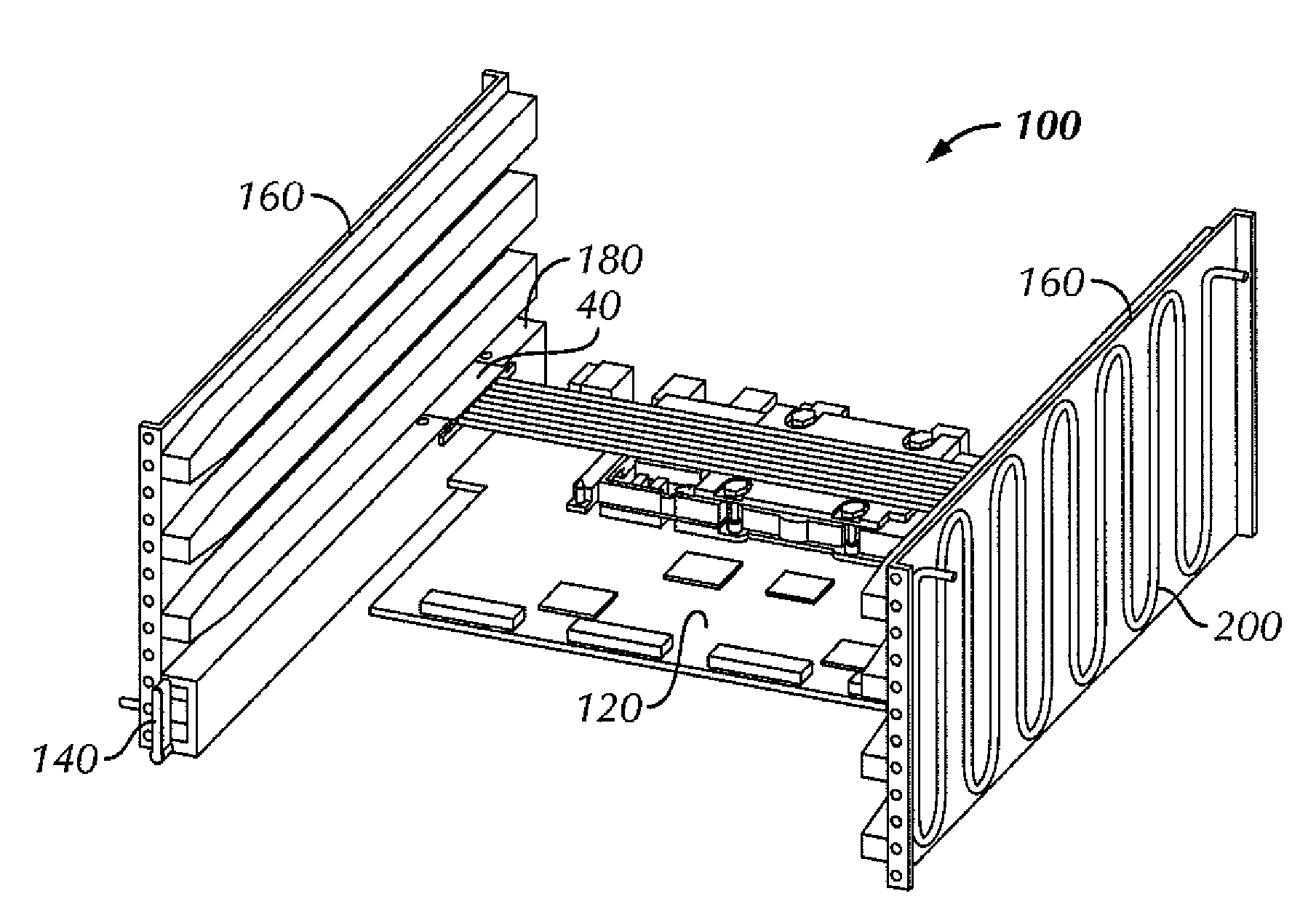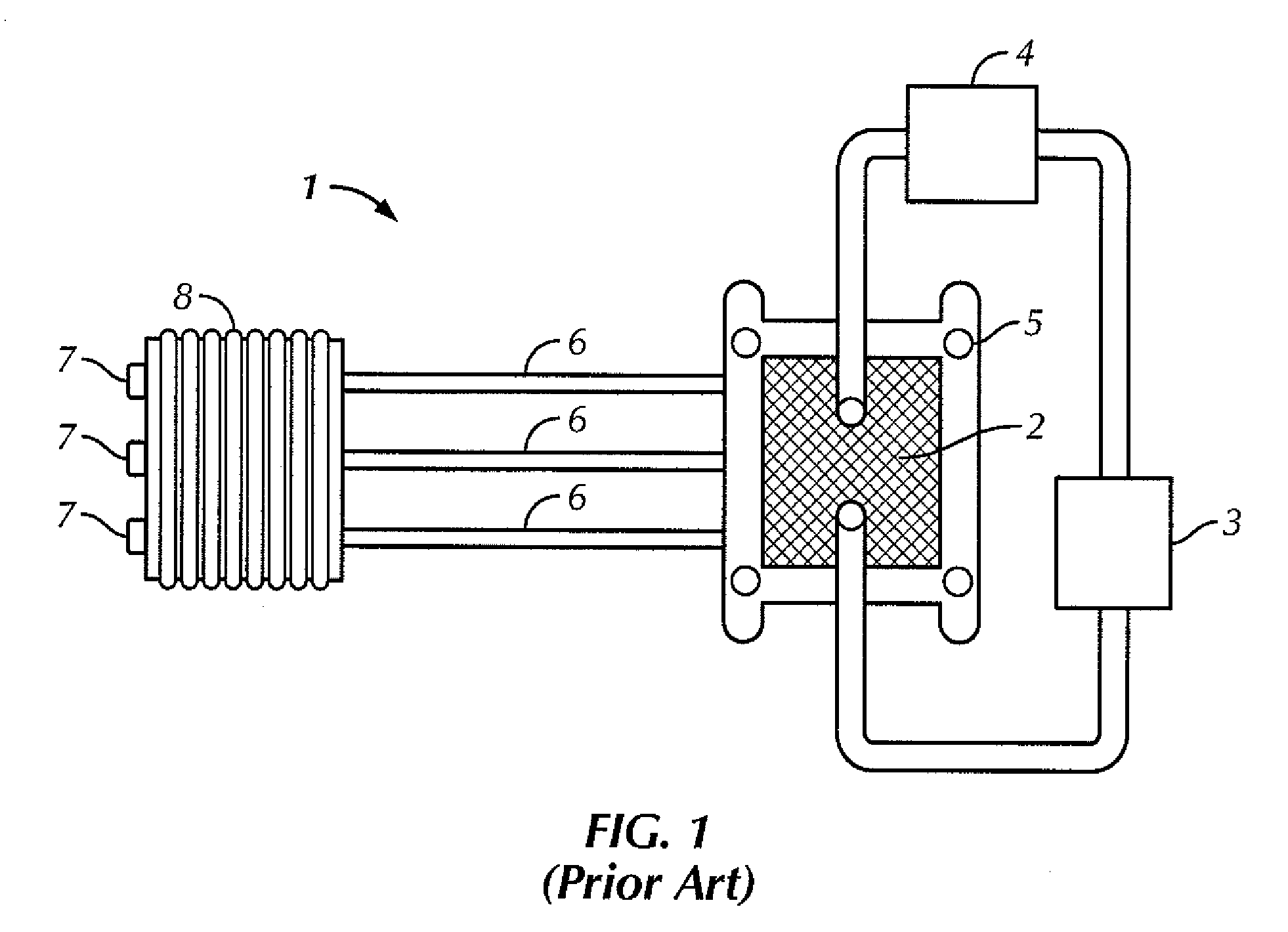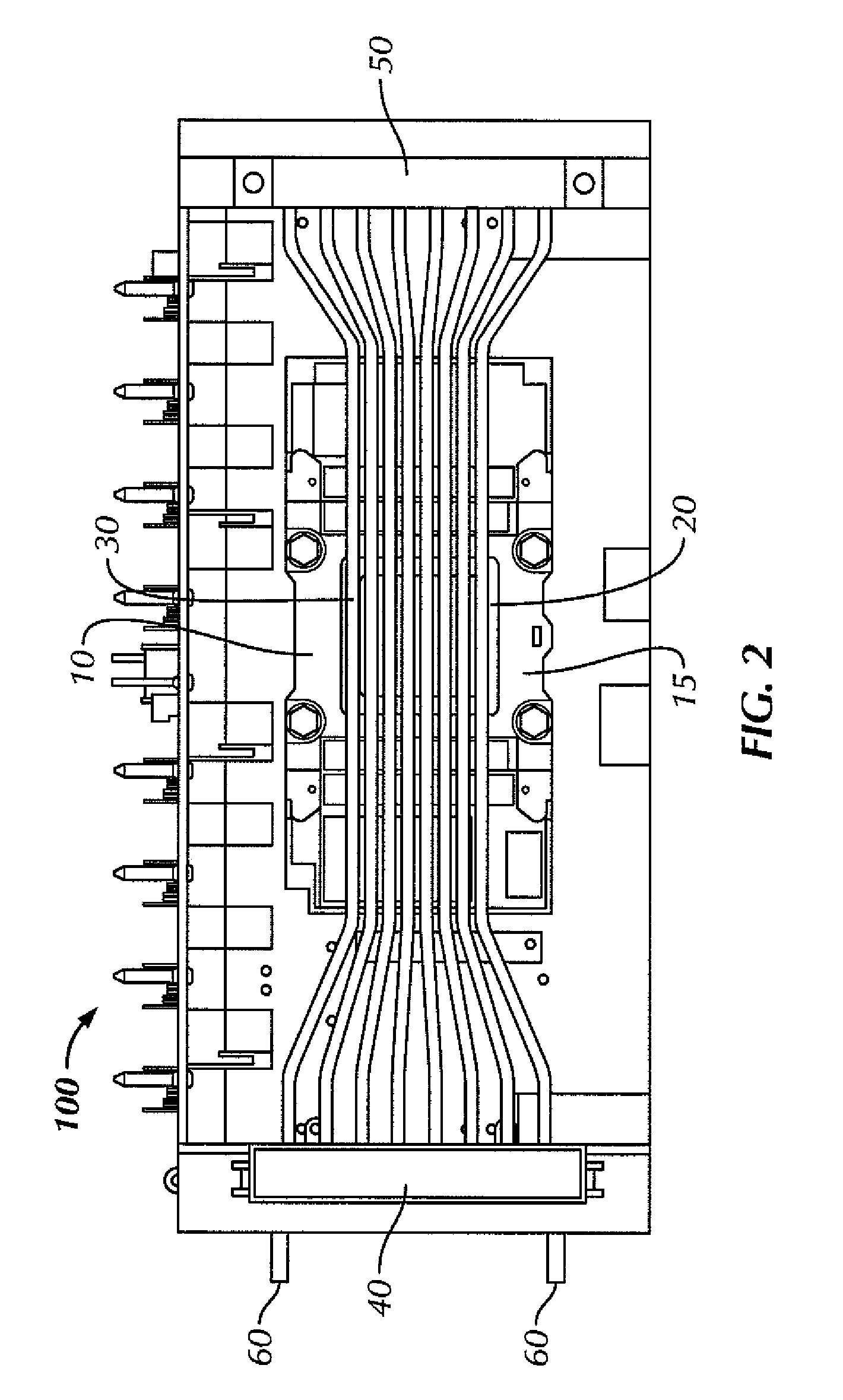Thermal transfer technique using heat pipes with integral rack rails
a heat pipe and rack rail technology, applied in lighting and heating apparatus, electrical equipment, cooling/ventilation/heating modifications, etc., can solve the problems of inability to store valuable data, prohibitive restorative expenditure, and heat generation by electronic components used,
- Summary
- Abstract
- Description
- Claims
- Application Information
AI Technical Summary
Problems solved by technology
Method used
Image
Examples
Embodiment Construction
[0017]Various exemplary embodiments of the invention will now be described with reference to the accompanying figures. Like elements are referred to by like reference numerals in the several views for the sake of clarity.
[0018]Referring to FIG. 2, in accordance with one or more embodiments of the invention, a thermal transfer apparatus 100 comprises of an evaporator 10 with a source cold plate 15 disposed over a heat-producing electronic circuit 20 and thermally coupled thereof. An array of heat pipes 30 carrying a working fluid inside is disposed over the evaporator 10 and thermally coupled thereto. The heat pipes 30 extend from an end comprising a cold plate 40 to an end comprising a condenser 50 over the evaporator 10, and the coolant supply lines 60 to the cold plate 40 and the condenser 50 are outside the thermal transfer apparatus 100. Because of this, leakage of coolant inside the apparatus is prevented.
[0019]FIG. 3 shows the thermal transfer apparatus 100 as part of a tray 1...
PUM
 Login to View More
Login to View More Abstract
Description
Claims
Application Information
 Login to View More
Login to View More - R&D
- Intellectual Property
- Life Sciences
- Materials
- Tech Scout
- Unparalleled Data Quality
- Higher Quality Content
- 60% Fewer Hallucinations
Browse by: Latest US Patents, China's latest patents, Technical Efficacy Thesaurus, Application Domain, Technology Topic, Popular Technical Reports.
© 2025 PatSnap. All rights reserved.Legal|Privacy policy|Modern Slavery Act Transparency Statement|Sitemap|About US| Contact US: help@patsnap.com



